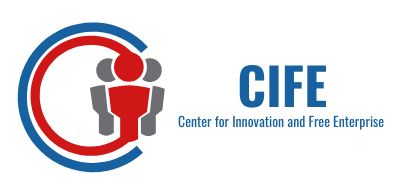As the 118th Congress begins to explore ways to lower the rising cost of healthcare, we believe lawmakers need to address an issue that affects millions of Americans insured in employer-sponsored health plans: “shared savings fees.”
Shared savings fees, also known as “administrative fees,” are paid by employers to third-party administrators (TPAs) and health insurance companies as protection from surprise billings. Recently, they have become a source of controversy and have come under scrutiny by both free-market groups and progressive groups.
Insurers claim to businesses that these fees help to reduce the out-of-network healthcare costs for their employees, but the lack of transparency and disclosure regarding these fees raises questions about their propriety and true impact on overall cost of care.
Critics argue that shared savings fees are often hidden from employers and employees, and that TPAs and health insurers have an incentive to keep these fees high in order to increase their own profits. This can result in higher healthcare costs for everyone involved, as well as contribute to the ongoing lack of accountability and transparency in the healthcare system.
We believe that consumers and businesses alike have a right to know how their healthcare dollars are being spent, and that greater transparency and disclosure regarding shared savings fees is essential to ensuring that these fees are being used in an ethical and effective manner.
To address this issue, we believe that Congress should support the efforts of employers and employees alike to better understand the impact of these fees on their healthcare costs and allow them to make more informed decisions about their healthcare.
Below are some recommendations for transparency and disclosure requirements for health insurers regarding shared savings fees:
- Disclose the existence of shared savings fees: Health insurers should clearly disclose the existence of shared savings fees to employers and employees, including the percentage of savings that will be shared and any conditions or limitations that apply.
- Provide regular reports on shared savings: Health insurers should provide regular reports to employers and employees on shared savings, including the amount of savings achieved and the amount of shared savings fees received.
- Disclose how shared savings fees are calculated: Health insurers should disclose how shared savings fees are calculated, including the formula used to determine the amount of the fee and any factors that may affect the calculation.
- Provide clear explanations of how shared savings fees are used: Health insurers should provide clear explanations of how shared savings fees are used, including whether they are used to offset the cost of healthcare premiums or to provide other benefits to employers or employees.
- Disclose any conflicts of interest: Health insurers should disclose any conflicts of interest that may arise from shared savings fees, such as whether health insurers are incentivized to narrow in-network coverage and/or to keep these fees high in order to increase their own profits.
- Provide access to independent auditors: Health insurers should provide access to independent auditors who can review and verify the accuracy of shared savings reports and calculations.
Adopting these recommendations, health insurers can increase transparency and ensure that employers and employees have a clear understanding of shared savings fees and how they are used.
Given Congress’ focus on pricing transparency in healthcare, they have an opportunity to bring clarity to shared savings fees in self-funded health insurance.
Congress needs to support allowing millions of Americans to make better decisions about their healthcare and promote a more competitive, innovative, and market-driven healthcare industry.
